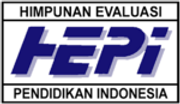Material Development of Mutual Cooperation in Akidah Akhlak Subject (Study on Berinjam tradition in SDN Kuala Jelai)
Abstract
Keywords
Full Text:
PDFReferences
Ali. H. (2017). Transformasi Nilai-nilai Kearifan Lokal Dalam Proses Pembelajaran Sebagai Upaya Pembentukan Karakter Bangsa: Pkn Progresif, 12 (1) : 528-542.
Anita, L. (2002). Cooperative Learning . Jakarta : Gramedia Widiasarana.
Direktorat Jenderal Kesatuan Bangsa dan Politik Departemen dalam Negeri. (2007. Peraturan Menteri Dalam Negeri Nomor 39 Tahun 2007 tentang pedoman Fasilitasi Organisasi Kemasyarakatan Bidang Kebudayaan, dan lembaga adat dalam pelestarian dan pengembangan budaya daerah.
Hand. N. (2006). Exploring sociocultural perspectives on race, culture, and learning: Review of Educational Research, 449-475.
Kemendikbud. 2014. Peraturan Menteri Pendidikan dan Kebudayaan Republik Indonesia Nomor 160 Tahun 2014 tentang Pemberlakuan Kurikulum Tahun 2006 dan Kurikulum 2013. Sekretariat Kemendikbud. Jakarta. Kurikulum Tahun 2006 dan Kurikulum 2013 pada Sekolah Jenjang Pendidikan Dasar dan Pendidikan Menengah. Kemendikbud. Jakarta.
Kusnadi. (2006). Filosofi Pemberdayaan Masyarakat Pesisir. Bandung : Humaniora
Nurhasanah. A. (2016). Pengembangan Materi ajar nilai-nilai budaya lokal (Studi Etnografi pada masyarakat adat Baduy): Candrasangkala. Vol 2 (2) : 62-70.
Nadlir. (2014). Urgensi Pembelajaran Berbasis Kearifan Lokal: Pendidikan Agama Islam, 2(2): 299-330.
Perianto. E. (2018). Kearifan Lokal Sekolah Sebagai Basis Pengembangan Program Bimbingan Dan Konseling Komprehensif: Konseling Andi Matappa. Vol 2 (1) : 11-18.
Panggabean. H. (2014). Kearifan Lokal Keunggulan Global. Jakarta: PT. Gramedia.
Padmanugraha. (2010). Bentuk-bentuk Kearifan Lokal. Jakarta : Gramedia.
Rianawati. (2014). Implementasi Nilai-nilai Karakter Pada Mata Pelajaran Pendidikan Agama Islam. Pontianak: IAIN Pontianak Press.
Subagyo. (2012). Pengembangan nilai dan tradisi gotong royong dalam bingkai konservasi nilai budaya: Indonesian Journal of Conservation: Vol 1 (1) : 61-68.
Salamun. (2002). Budaya Masyarakat Suku Bangsa Jawa di Kabupaten Wonosobo. Tesis
Susanto. H. (2017). Pendidikan Berbasis Kearifan Lokal. Jakarta : PT. Remaja Rosdakarya.
Sunarto. (2008). Perkembangan peserta didik. Jakarta : PT. Renika Cipta.
Sartini. (2004). Menggali Kearifan Lokal Nusantara. Bandung : Alfabeta.
Sugiyono. (2017). Metodologi Penelitian Kualitatif. Bandung : Alfabeta.
Tilaar. (2002). Pendidikan, kebudayaan, dan masyarakat madani. Bandung : Remaja Rosdakarya.
Wahab. (2015). Sapa And Base Communication Of Sambas Society: A Case Of Malay-Madurese Post-Conflict 1999-2014: Of Scientific And Technology Research, 4(2), 253-256.
Zulkifli. (2017). Profesionalisme guru dalam mengembangkan Materi Ajar: Ilmiah, 3(2), 120-133.
DOI: https://doi.org/10.18326/mdr.v11i1.68-86
Refbacks
- There are currently no refbacks.
Copyright (c) 2019 Alimaturraiyah Alimaturraiyah, Wahab Wahab

This work is licensed under a Creative Commons Attribution 4.0 International License.

This work is licensed under a Creative Commons Attribution 4.0 International License.
Program Studi Pendidikan Guru Madrasah Ibtidaiyah (PGMI)
Universitas Islam Negeri (UIN) Salatiga, Indonesia
Jl. Lingkar Salatiga Km. 2 Pulutan, Sidorejo, Kota Salatiga, Jawa Tengah 50716,
Telp. (0298) 323706 – Fax. (0298) 323433
Technical Support: jurnalmudarrisa@iainsalatiga.ac.id
P-ISSN: 2085-2061
E-ISSN: 2541-3457



